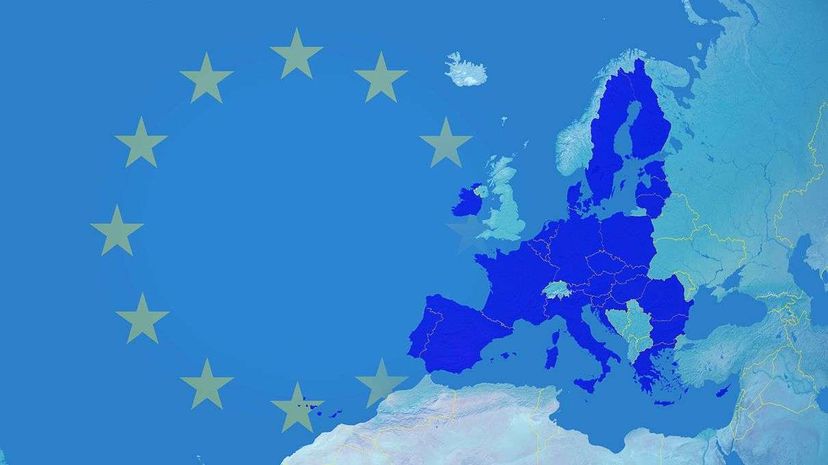
When United Kingdom voters narrowly decided last Thursday in favor of exiting from the European Union, it created tremendous uncertainty about what would happen next. There is a legal mechanism for leaving the EU — Article 50 of the Treaty of Lisbon, signed by member nations back in 2007, which requires the EU to negotiate departure terms with any country that gives at least two years' notice. But it's never been used before. In fact, up to this point, no European nation has ever withdrawn from the EU in the organization's history, which dates back to the creation in 1950 of its ancestor, the European Steel and Coal Community.
But that doesn't mean that nobody ever has left the EU, or its predecessors. Algeria once was part of an EU predecessor, the European Economic Community, by virtue of being a colonial possession of France. But after the Algerians gained their independence in 1962, they simultaneously quit the EEC. (Here's a more detailed account.) But they didn't stay permanently apart; In 1976, Algeria negotiated the first of several trade, labor and financial agreements with the Europeans, and today participate in various EU programs through the European Neighborhood Policy.
Advertisement
In 2007, the Caribbean island archipelago of Saint Barthélemy, which left the EU when it gained greater political autonomy from France in 2007, worked out a similar deal so that it could continue to participate in EU programs and receive economic aid.
But there's also a much bigger example. Greenland, the world's biggest island and a territory within Denmark, was compelled to join the European Economic Community in 1973 when the rest of the Danish nation did, even though 70 percent of its residents had voted against membership. But in 1982, after Greenlanders gained a greater degree of political autonomy within Denmark, they held their own referendum, and voted 52 percent to 48 percent — a similarly narrow margin to Brexit — to quit the organization.
Unlike the Brexit supporters, who have a variety of discontents with the EU, the grievances of Greenlanders were more narrowly focused, according to news accounts from that time. Greenland's big industry is fishing, and its fishermen didn't like European competitors being able to just swoop in and take $100 million in shrimp, cod and redfish each year. Limited access to European markets and the economic aid that Greenland got from Europe — $23 million a year — didn't seem like adequate compensation.
Even so, negotiating Greenland's departure took about three years of hard bargaining. In the end, Greenland ultimately got control over its own fishing grounds, with the understanding that European fishermen would get limited access, and the Europe would cough up about 10 times as much aid, according to a recent newspaper account. Today, Greenland is part of an EU category called Overseas Countries and Territories, whose members get economic aid and duty-and-quota-free access to EU countries.
But experts on European law and politics say that Greenland doesn't provide much of a template for the U.K.'s split with the EU.
"Greenland was part of the territory of an existing member state, which left while the member state remained in the EU," Panos Koutrakos, a professor of European law at City University London and a barrister at Monckton Chambers, writes in an email. "Its population was less than 50,000 people and produced only one product. The differences with the U.K. are too obvious to point out."
As Koutrakos sees it, "The legal complexity of unraveling the links between the EU and the U.K. are staggering. Article 50 refers to the divorce arrangement between the U.K. and the EU. The two-year deadline applies to negotiating that arrangement. The future relationship between the U.K. and the EU is subject to negotiations for which EU law does not provide any deadline. The Brexit process is bound to be long, extraordinarily complex, and expensive."
Additionally, if Leave proponents are looking to Greenland as an example of post-EU survival, they might want to reconsider. In recent years, some of Greenland's politicians and business leaders, eager to attract investment and diversify to escape the traditional dependence upon fishing, actually have floated the idea of rejoining the EU.
Which brings us back to the original point — that the U.K. is sailing into uncharted waters. "I hope that somehow people who voted Leave will — well, some of them — realize that they have been sold a pup," Anne Deighton, a professor of European International Politics at the University of Oxford's Wolfson College, writes in an email. "The Leave campaigners did not tell the whole truth by any stretch of the imagination, and did not have a plan, apart from Leaving."
Advertisement